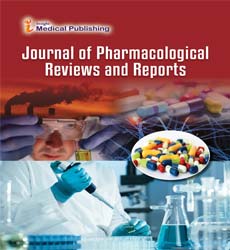Drug utilization pattern and quality of life assessment in diabetic patients: A Prospective observational study
Abstract
Diabetes Mellitus (DM) is a chronic condition that affects 537 million people worldwide, with one in every 10 people suffering from it. Drug utilisation studies and diabetes patient quality of life are critical assessment markers in disease management.Materials and Procedures: At a multispecialty hospital, 180 diabetic patients were enrolled in an 8-month prospective study. In case record form, demographic information and other relevant data were obtained in Case Record Form. Physical health problems, role limitation due to personal or emotional problems, social functioning, and general health perception were all assessed using the MDQoL quality of life questionnaire.Results: Males (n=101) outnumbered females (n=79) in the current study, out of 180 patients. The average age was 58.34 years. FBS and PP2BS were determined to be 194.1 and 288.40 mg/dl in males and 183.37 and 289.03 mg/dl in females during the study. Metformin was the most commonly prescribed medicine as a monotherapy, as well as Metformin plus Glimepiride as a combination. The oral route of administration was the most suggested route. his study total 36 patients were newly diagnosed diabetic patients. Along with neuropathy and retinopathy, hypertension was the most prevalent comorbidity. Cardiovascular medications, antiemetic drugs, antibiotics, and vitamin supplements were all prescribed as adjuvant treatments. According to the MDQOL-17 questionnaire, the majority of the patients reported a higher quality of life.Conclusion: In patients with uncontrolled diabetes, severe diabetic consequences such as neuropathy and retinopathy were discovered. Patients with palliative effects were frequently taken metformin as a monotherapy.
Open Access Journals
- Aquaculture & Veterinary Science
- Chemistry & Chemical Sciences
- Clinical Sciences
- Engineering
- General Science
- Genetics & Molecular Biology
- Health Care & Nursing
- Immunology & Microbiology
- Materials Science
- Mathematics & Physics
- Medical Sciences
- Neurology & Psychiatry
- Oncology & Cancer Science
- Pharmaceutical Sciences
